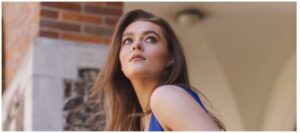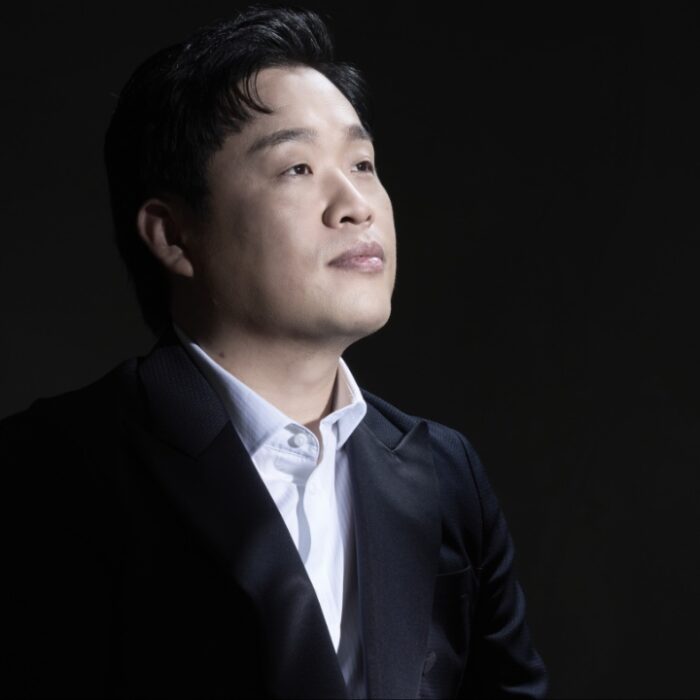
Q & A: Soprano Ava Dodd On Her Fast-Moving Career & Wexford Festival Opera
By Alan Neilson(Photo: Olivia Da Costa)
One of Ireland’s most exciting young singing talents is Dublin-born soprano Ava Dodd. At only 25, she already has an impressive biography. Not only has she appeared on the stage in a variety of roles, including Oscar from Verdi’s “Un Ballo in Maschera,” the Waldvögelein from Wagner’s “Siegfried” and Perdita from Goldmark’s “Ein Wintermärchen,” in venues across Ireland and Europe, but she has also proved her worth as a prize winner in a series of singing competitions, most recently winning the Yves Paternot prize at this year’s Verbier Festival.
Currently in rehearsals, she is now busily preparing for Wexford Festival Opera’s production of Camille Erlanger’s “L’ Aube Rouge,” which starts later this month, in which she will be playing the role of Sonia.
OperaWire was fortunate to catch up with the soprano as she made time in her heavy schedule traveling back and forth between London, where she was performing in English National Opera’s production of “Peter Grimes,” and rehearsals in Wexford.
OperaWire: What made you want to become an opera singer?
Ava Dodd: I came from a very musical family. My nana was a soprano and her mother was a mezzo and a pianist. They were not professionals, but it meant I grew up in a musical household. Also, my uncle, who I’m very close to, is a fantastic violinist, and this had a big influence on me. I have loved music ever since I can remember; I learned the piano and viola and had singing lessons. When I was 17, I started studying with Mary Brennan, and she had a huge effect on my decision to become a singer. She is so passionate and dedicated. It was just great to be around her. So, I auditioned for the Royal Irish Academy of Music, and did a four-year undergraduate course, and then went to London on a full scholarship at the Royal College of Music, where I did my Master’s.
I graduated in June 2022, and I decided not to go down the Opera school route that most young singers follow. Instead, I went straight to Klagenfurt in Austria and joined the ensemble there.
OW: Why did you decide to go to Klagenfurt Opera in Austria directly after finishing college? How did it benefit you?
AD: I auditioned with the casting agent, Christian Carlsted, who works with many different opera houses across Europe. He offered me four roles there: Oscar in “Un Ballo in Maschera,” Die Waldvöglein in “Siegfried,” the soprano solo in “Carmina Burana” and “Mirjam” in Bernard Lang’s new opera “Hiob.”
Even though I knew that I would be outside of my comfort zone, I decided that this would be the right decision for my career. It would allow me to start working and to learn on the job. Klagenfurt is a small house with a high reputation, so it was really a good place for me to start. It was a huge change for me. I didn’t know anyone there, and I couldn’t speak the language. It definitely wasn’t the easiest option, but it was so rewarding.
OW: You were a member of the first batch of students at the Wexford Factory, Wexford Festival Opera’s training program for young singers. What role has it played in your development, and how useful was the experience?
AD: Firstly, it gave young singers the opportunity to sing a role in the National Opera House. It was an amazing experience, and many of us on the program had never sung on a stage of that size before. We had done little recitals in college and working on smaller stages, which is a totally different experience. I remember the first day at the Factory: we all had to perform an aria on that huge stage, and I felt so tiny. I was worried people wouldn’t be able to hear or even see me properly! I got used to it and now I love being up there.
Also, having someone like Rosetta Cucchi, who runs the Factory, who really believes in you, and pushes and advises you at such an early stage in your career, is so valuable. She gave us the opportunity to sing for people like Juan Diego Flores and Emornela Jaho. Getting their advice and attending their master classes was hugely beneficial.
Being in the factory also allowed me to be around people of my age group, at a similar stage of development. It made me realize I was not alone and that I was sharing the same experience as others. When I left college and joined the ensemble at Klagenfurt, I was the youngest and the least experienced, and it was a little bit daunting. There is nothing like the support you get from being one of many in the same position, and that is one of the main benefits that the Wexford Factory gives you.
OW: How would you describe your voice?
AD: I am 25 now, and my voice is on the lighter side of lyric. However, it is growing and I’ll eventually be a full lyric soprano. Singing high comes quite naturally to me, as I have an extension up to a top E flat. At the moment, I really enjoy singing Donizetti, Gounod and Mozart, and the Romantic repertoire in general; it fits well with my voice. The sound is focused, which allows me to cut through the orchestra, but I like to think that there is a warmth to it as well.
OW: You are a serial competition winner. Among many other prizes, most recently, you won the Yves Paternot prize at the prestigious Verbier Festival. Do you like competitions?
AD: Yes, I do. I enjoy the challenge and enjoy being hyper-focused. It can be very intense, but I like to think I work well under pressure. It feels really good when it goes well. However, it is not just about winning. It is also a great way to practice your audition package and to perform with a full orchestra. And, of course, it is a way to get noticed. There are many important people on the panel, like casting agents from around the world, so it is a great opportunity to raise your profile and open doors.
OW: You are about to begin a series of performances as Sophie in Camille Erlanger’s opera “L’ Aube Rouge” at the Wexford Festival Opera. As is normal for Wexford, it is not a well-known work. What are your initial thoughts about the opera?
AD: It is a story based around the love story of two characters, Olga and Serge. They are revolutionaries trying to fight for their nation. All the other characters are subsidiary to them. Like most people, I had never heard of this opera before I was asked to do it, and actually, it is a lovely work. There are not many recordings online and it is only since I have started rehearsals that I have gotten to know the music. It’s a beautiful French Romantic piece.
The opera moves between Russia and France, so there is a big contrast in the scenes.
OW: You are playing the role of Sonia. Can you tell us something about her character and the challenges of playing the role?
AD: Sonia is an 18-year-old girl who is extroverted and very passionate about the revolutionary struggle and wants to support it. I like playing her as she is fiery and fervent. She is best friends with a character called Tatania, who is actually being played by a good friend of mine called Hannah O’Brien.
It is not a huge role, but I do appear at various points throughout the work. Musically, it is not the most difficult of roles to sing, but it suits my tessitura really well and I love singing the part.
OW: What does it mean to you as an Irish singer to be singing in Wexford?
AD: This my third time singing here, and I can only hope I will be singing here many times again in the future. When I am here, it really does feel like I have come home. It is great to meet old friends again; so many Irish singers sing here now. So, I meet up with people I went to college with or met on previous occasions in Wexford. It is a tight community in which everyone is friends. There are also plenty of new people to meet. It is great fun. Also, you get so many opportunities when you are here. This year, as well as the opera, I will be singing in the Gala concert, which is a wonderful experience.
I remember coming to Wexford for the first time two years before I first sang here. I saw the double bill of Rossini’s “Adina” and Andrew Synnott’s “La Cucina” and I also went to a lunchtime recital and the Gala concert. It was all so gorgeous, and I thought if I had the chance to sing here, it would be a dream come true. And it has!
OW: What are your future plans?
AD: Next year I will be singing the role of Fennimore in “Der Sibersee” at the National Opera de Lorraine in Nancy.
In the next five years, I would like to see myself singing in opera houses around the world in lead roles such as Susanna, Adina, Musetta and Norina. Then, within ten years, I would like to have moved on to bigger roles like Manon.
My dream is to sing at the New York Met. and La Scala and other major opera houses, but also to sing all the major roles, especially Violetta and Mimi.



